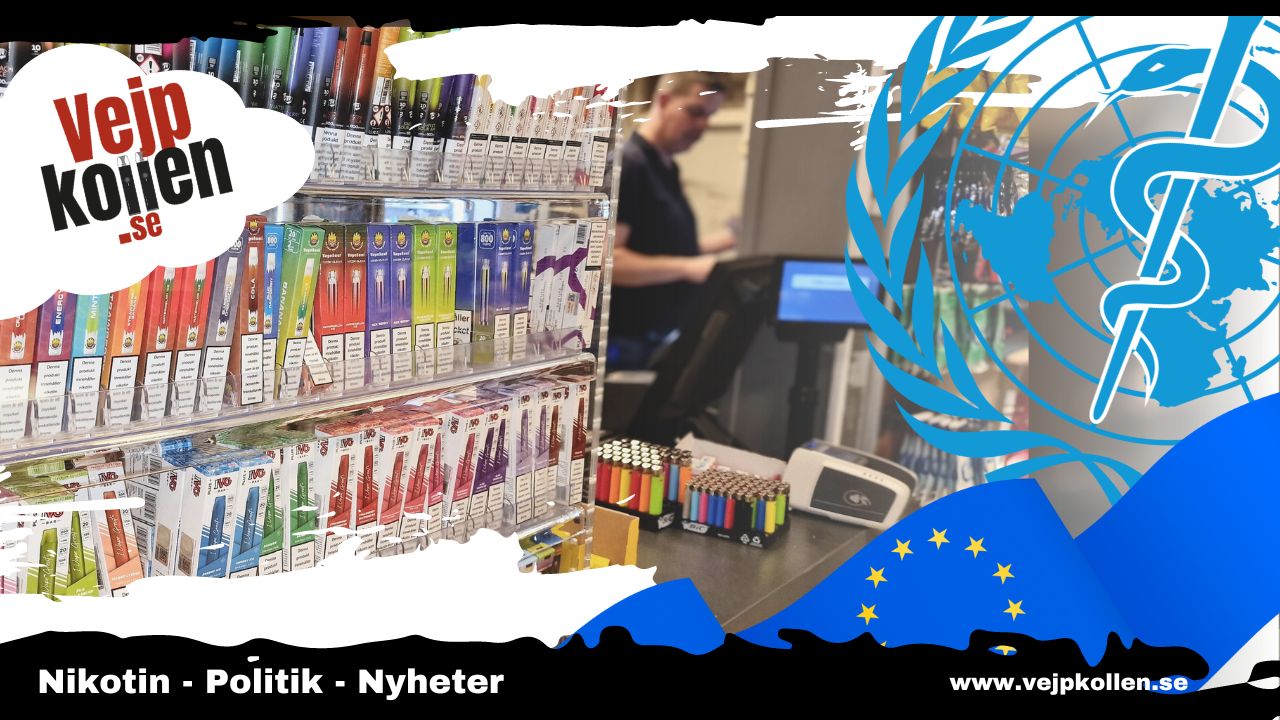E-cigarettes, but also other smokeless nicotine products, are the focus of the 10th meeting of the Tobacco Convention. And among the 183 countries attending the meeting, there are very different views on how to deal with the emerging market of competing nicotine products.
Both New Zealand and the UK currently recommends e-cigarettesvejps, to help smokers quit. New Zealand authorities runs campaigns to encourage smokers to test e-cigarettes, and the UK will, from 2024, be able to distribute e-cigarettes to one million smokers in the country to help them quit.
Already heavily regulated
While the products are heavily regulated in the UK, e-cigarettes can be sold in ordinary shops with an age limit and product registration requirements. However, marketing opportunities are limited.
"Neither children nor non-smokers should use e-cigarettes. We have recently introduced a ban on single-use models and put in place other measures to reduce uptake among young people," said Mr Perez. Rosanna O'Connor leading the UK delegation during his opening speech at COP10.
Taping reduced smoking
According to the New Zealand delegation, the country has managed to reduce the percentage of smokers dramatically since the last meeting in 2021. As Vejpkollen previously reported, the sharp decline strongly linked to the uptake of e-cigarettes in the country.
"We have come so far, we need to go further. We've done so much that we need to do more," said Mr Perez. Jane Chamberswho heads the New Zealand delegation in Panama.
Combining the measures
The daily smoking rate is down to 6.8 per cent, a drop from 16 per cent in 2012, noted Jane Chambers in his speech.
"And it continues to decline." noted Jane Chambers "We have achieved this through a combination of measures under the Tobacco Convention and evidence-based harm reduction efforts. This includes measures to make a range of replacement products available to smokers. E-cigarettes are regulated and not allowed to be sold to those under eighteen, and the shop selling them is licensed to do so."
Regulating e-cigs - despite WHO opposition
The Philippines also emphasised the importance of regulating e-cigarettes and other new nicotine products. Recently, the government of the Philippines chose to, against WHO recommendations, not banning e-cigarettes, but instead regulating them under new legislation. An unregulated market increases the risk of youth use, according to the Philippine delegation.
"The legislation in the Philippines aims to reduce the harm caused by smoking, by establishing a comprehensive and differentiated regulatory framework for the import, manufacture, sale, packaging, distribution, use and marketing of e-cigarettes with or without nicotine. The same applies to other novel tobacco products. The new law prevents young people from getting hold of these products," said Mr Van Rompuy. Hubert Guevara, leader of the Philippine delegation at COP10.
Currently, 19 per cent of the adult population in the Philippines smoke. Two per cent road pairs (equivalent to 1.6 million people)
The Netherlands calls for a ban
A completely different approach to harm minimisation and vejping was expressed by the European Commission. The Dutch delegation, where the message was more about prohibitions and restrictions than about regular regulation.
"New nicotine products are becoming increasingly popular. They are supposed to help people stop smoking. But the reality is something else. They attract young people and nicotine is dangerous for young people" said Deputy Minister of Health. Marjolijn Sonnema and said that the Dutch approach, which has led to both a flavour ban on e-cigarettes and a possible total ban on nicotine pouches, is necessary to reach the WHO's smoke-free target.
Still no Swedish position
Neither Sweden nor any of the other Nordic countries chose to make a statement during the opening seminar. However, the EU issued a joint statement emphasising the importance of more comprehensive measures to reduce smoking in the EU.
"In the European Union, we have established ambitious tobacco control legislation and policies, yet the number of smokers remains high. We are determined to deliver on Europe's plan to reduce cancer and create a tobacco-free generation by 2040. To do so, we are currently evaluating the legal framework for tobacco control and will take the necessary measures to improve it," said Mr Van Rompuy. Kris Boers, via the Beligian Delegation, without going into details.
Concerns about nicotine pouches
Although at present no official data is available On how the EU will treat products such as nicotine pouches during the revision of the Tobacco Directive, leaked information has raised concerns among Swedish nicotine users and nicotine pouch manufacturers. Kris Boers chose not to talk about specific products and instead emphasised a more general tone.
"To effectively curb the growing use by young people, we need to continue our work on cross-border tobacco advertising, marketing and sponsorship in all types of media, especially digital and media communication platforms." said Kris Boers.




